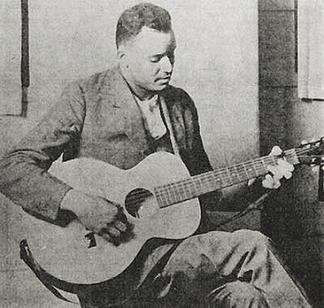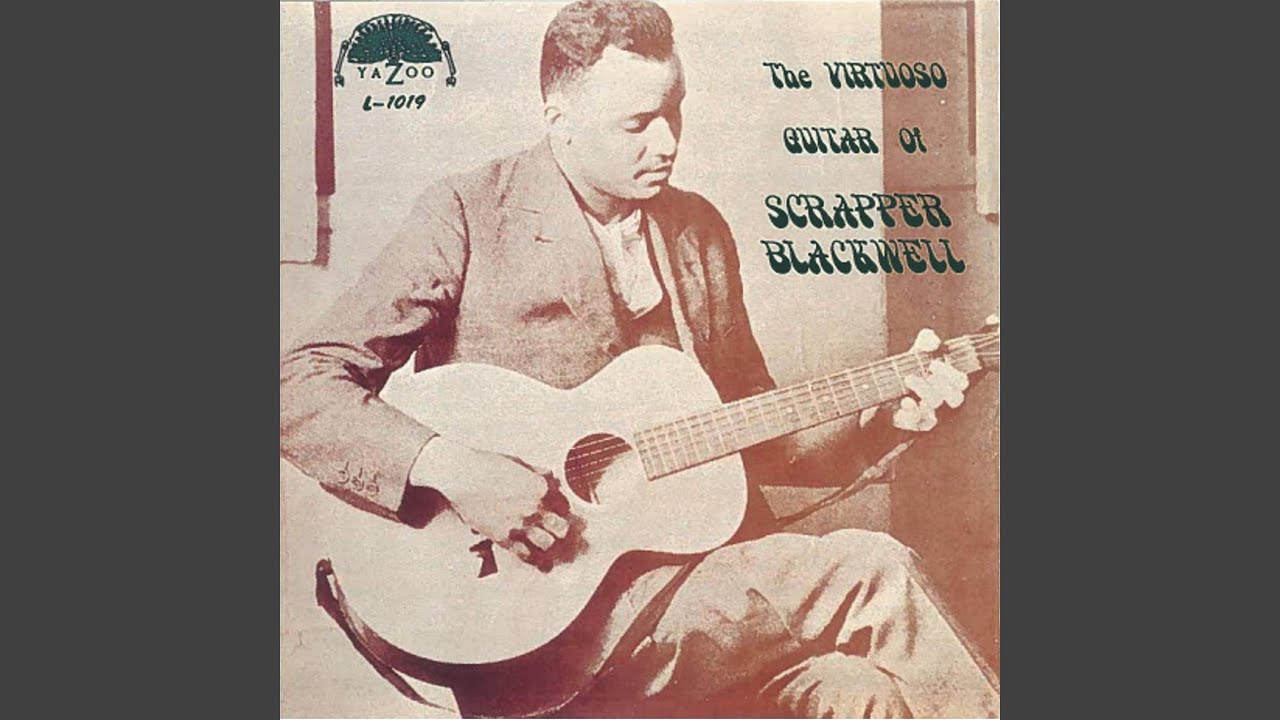Francis “Scrapper” Blackwell, born on February 21, 1903, in Syracuse, North Carolina, was one of the most influential figures in the development of urban blues. Although often overshadowed by more prominent blues legends, Blackwell’s guitar playing and collaborations—particularly with pianist Leroy Carr—helped shape the sound of pre-war blues and left an enduring legacy in American music.
Early Life and Musical Beginnings
Blackwell was one of sixteen children born to Payton and Elizabeth Blackwell, a family of African American and Cherokee descent. As a child, his family relocated to Indianapolis, Indiana, where he would spend much of his life. Though he had no formal musical training, Scrapper demonstrated a natural aptitude for music from an early age.
He began crafting his own guitars using cigar boxes and strings and gradually developed a unique fingerpicking style that combined melodic sophistication with rhythmic precision. This style would later become a foundational element of the Piedmont blues and urban blues movements.
Partnership with Leroy Carr
Scrapper Blackwell’s life changed dramatically when he met pianist Leroy Carr in the mid-1920s. The two quickly formed a musical partnership that would become one of the most successful duos in blues history. Their first major hit, “How Long, How Long Blues” (1928), recorded for Vocalion Records, was a massive success and established them as stars of the genre.
Their recordings blended Blackwell’s smooth, intricate guitar lines with Carr’s mellow vocals and piano, creating a polished sound that appealed to both black and white audiences. Songs like “Midnight Hour Blues,” “Blues Before Sunrise,” and “Shady Lane Blues” showcased their remarkable musical chemistry and set new standards for blues songwriting and performance.
Solo Work and Innovations
While best known for his collaborations with Carr, Blackwell also pursued a solo career. His solo recordings, such as “Trouble Blues” and “Kokomo Blues,” displayed his versatility and innovation as a guitarist. He was one of the first bluesmen to use single-note runs in a way that prefigured the electric blues styles of later artists.
Blackwell’s guitar work combined elements of jazz and ragtime, characterized by clean phrasing, subtle dynamics, and a sophisticated sense of harmony. His influence can be heard in the playing of later guitarists like T-Bone Walker and B.B. King.
Tragedy and Retreat from Music
Scrapper Blackwell’s musical career was disrupted by the tragic and untimely death of Leroy Carr in 1935 from alcoholism. Deeply affected by the loss of his friend and musical partner, Blackwell gradually withdrew from the music scene. Though he occasionally performed and recorded after Carr’s death, his career never regained its previous momentum.
In the years that followed, Blackwell lived a relatively quiet life in Indianapolis, working various jobs outside the music industry. For a time, it seemed as though his contribution to blues music might fade into obscurity.
Rediscovery and Final Years
In the late 1950s, the folk and blues revival sparked renewed interest in early blues pioneers. Scrapper Blackwell was “rediscovered” by blues enthusiasts and began performing again. He recorded a well-received album in 1960 for the Bluesville label titled “Blues Before Sunrise,” which showcased his undiminished talent and earned him critical acclaim.
Tragically, just as his second career was beginning to take off, Blackwell was murdered during a mugging in Indianapolis on October 7, 1962. He was 59 years old. His death was a tragic end to a life that had contributed so much to American music.
Legacy
Scrapper Blackwell’s impact on the blues is profound and lasting. He was a pioneer of the guitar-piano blues duet format, and his intricate, jazz-influenced guitar work helped pave the way for modern blues guitarists. His recordings with Leroy Carr remain essential listening for blues fans and continue to influence musicians across genres.
Though he may not be as widely recognized as some of his contemporaries, Blackwell’s contributions have earned him a respected place in blues history. He was posthumously inducted into the Blues Hall of Fame in 2017, a long-overdue recognition of his artistry and influence.
Today, Scrapper Blackwell is remembered not only for his musical brilliance but also for his role in shaping the sound of the blues during one of its most formative periods. His work stands as a testament to the depth and richness of the blues tradition, and his story continues to inspire musicians and listeners around the world.


No responses yet